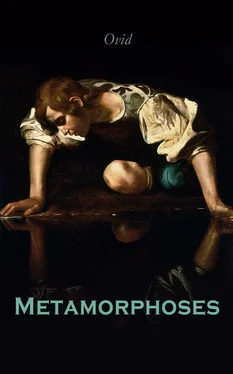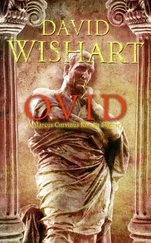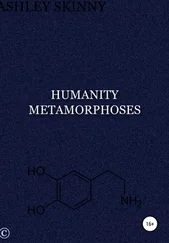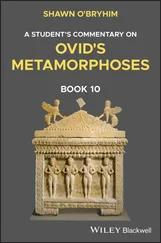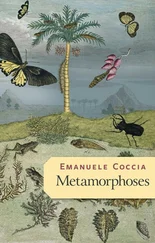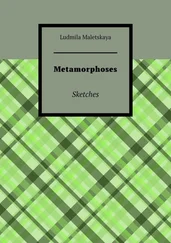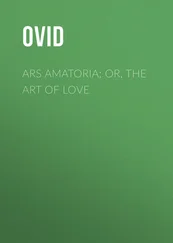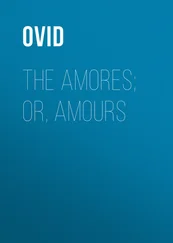According to Ovid, as in the book of Genesis, man is the last work of the Creator. The information derived from Holy Writ is here presented to us, in a disfigured form. Prometheus, who tempers the earth, and Minerva, who animates his workmanship, is God, who formed man, and ‘breathed into his nostrils the breath of life.’
Some writers have labored to prove that this Prometheus, of the heathen Mythology, was a Scriptural character. Bochart believes him to have been the same with Magog, mentioned in the book of Genesis. Prometheus was the son of Iapetus, and Magog was the son of Japhet, who, according to that learned writer, was identical with Iapetus. He says, that as Magog went to settle in Scythia, so did Prometheus; as Magog either invented, or improved, the art of founding metals, and forging iron, so, according to the heathen poets, did Prometheus. Diodorus Siculus asserts that Prometheus was the first to teach mankind how to produce fire from the flint and steel.
The fable of Prometheus being devoured by an eagle, according to some, is founded on the name of Magog, which signifies ‘a man devoured by sorrow.’ Le Clerc, in his notes on Hesiod, says, that Epimetheus, the brother of Prometheus, was the same with the Gog of Scripture, the brother of Magog. Some writers, again, have exerted their ingenuity to prove that Prometheus is identical with the patriarch Noah.
The formation of man is followed by a succession of the four ages of the world. The first is the Golden Age, during which Innocence and Justice alone govern the world.
The Golden Age was first founded, which, without any avenger, of its own accord, without laws, practised both faith and rectitude. Punishment, and the fear of it , did not exist, and threatening decrees were not read upon the brazen tables , 28fixed up to view , nor yet did the suppliant multitude dread the countenance of its judge; but all were in safety without any avenger. The pine-tree, cut from its native mountains, had not yet descended to the flowing waves, that it might visit a foreign region; and mortals were acquainted with no shores beyond their own. Not as yet did deep ditches surround the towns; no trumpets of straightened, or clarions of crooked brass, 29no helmets, no swords then existed. Without occasion for soldiers, the minds of men , free from care, enjoyed an easy tranquillity.
The Earth itself, too, in freedom, untouched by the harrow, and wounded by no ploughshares, of its own accord produced everything; and men, contented with the food created under no compulsion, gathered the fruit of the arbute-tree, and the strawberries of the mountain, and cornels, and blackberries adhering to the prickly bramble-bushes, and acorns which had fallen from the wide-spreading tree of Jove. Then it was an eternal spring; and the gentle Zephyrs, with their soothing breezes, cherished the flowers produced without any seed. Soon, too, the Earth unploughed yielded crops of grain, and the land, without being renewed, was whitened with the heavy ears of corn. Then, rivers of milk, then, rivers of nectar were flowing, and the yellow honey was distilled from the green holm oak.
The heathen poets had learned, most probably from tradition, that our first parents lived for some time in peaceful innocence; that, without tillage, the garden of Eden furnished them with fruit and food in abundance; and that the animals were submissive to their commands: that after the fall the ground became unfruitful, and yielded nothing without labor; and that nature no longer spontaneously acknowledged man for its master. The more happy days of our first parents they seem to have styled the Golden Age, each writer being desirous to make his own country the scene of those times of innocence. The Latin writers, for instance, have placed in Italy, and under the reign of Saturn and Janus, events, which, as they really happened, the Scriptures relate in the histories of Adam and of Noah.
In the Silver Age, men begin not to be so just, nor, consequently, so happy, as in the Golden Age. In the Brazen Age, which succeeds, they become yet less virtuous; but their wickedness does not rise to its highest pitch until the Iron Age, when it makes its appearance in all its deformity.
Afterwards (Saturn being driven into the shady realms of Tartarus), the world was under the sway of Jupiter; then the Silver Age succeeded, inferior to that of gold, but more precious than that of yellow brass. Jupiter shortened the duration of the former spring, and divided the year into four periods by means of winters, and summers, and unsteady autumns, and short springs. Then, for the first time, did the parched air glow with sultry heat, and the ice, bound up by the winds, was pendant. Then, for the first time, did men enter houses; those houses were caverns, and thick shrubs, and twigs fastened together with bark. Then, for the first time, were the seeds of Ceres buried in long furrows, and the oxen groaned, pressed by the yoke of the ploughshare .
The Age of Brass succeeded, as the third in order, after these; fiercer in disposition, and more prone to horrible warfare, but yet free from impiety. The last Age was of hard iron. Immediately every species of crime burst forth, in this age of degenerated tendencies; 30modesty, truth, and honor took flight; in their place succeeded fraud, deceit, treachery, violence, and the cursed hankering for acquisition. The sailor now spread his sails to the winds, and with these, as yet, he was but little acquainted; and the trees , which had long stood on the lofty mountains, now, as ships bounded 31through the unknown waves. The ground, too, hitherto common as the light of the sun and the breezes, the cautious measurer marked out with his lengthened boundary.
And not only was the rich soil required to furnish corn and due sustenance, but men even descended into the entrails of the Earth; and riches were dug up, the incentives to vice, which the Earth had hidden, and had removed to the Stygian shades. 32Then destructive iron came forth, and gold, more destructive than iron; then War came forth, that fights through the means of both, 33and that brandishes in his blood-stained hands the clattering arms. Men live by rapine; the guest is not safe from his entertainer, nor the father-in-law from the son-in-law; good feeling, too, between brothers is a rarity. The husband is eager for the death of the wife, she for that of her husband. Horrible stepmothers then mingle the ghastly wolfsbane; the son prematurely makes inquiry 34into the years of his father. Piety lies vanquished, and the virgin Astræa 35is the last of the heavenly Deities to abandon the Earth, now drenched in slaughter.
The Poet here informs us, that during the Golden Age, a perpetual spring reigned on the earth, and that the division of the year into seasons was not known until the Silver Age. This allusion to Eden is very generally to be found in the works of the heathen poets. The Silver Age is succeeded by the Brazen, and that is followed by the Iron Age, which still continues. The meaning is, that man gradually degenerated from his primeval innocence, and arrived at that state of wickedness and impiety, of which the history of all ages, ancient and modern, presents us with so many lamentable examples.
The limited nature of their views, and the fact that their exuberant fancy was the source from which they derived many of their alleged events, naturally betrayed the ancient writers into great inconsistencies. For in the Golden Age of Saturn, we find wars waged, and crimes committed. Saturn expelled his father, and seized his throne; Jupiter, his son, treated Saturn as he had done his father Uranus; and Jupiter, in his turn, had to wage war against the Giants, in their attempt to dispossess him of the heavens.
Читать дальше
